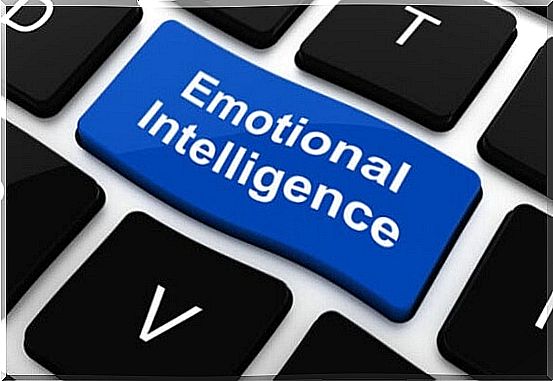Emotional Intelligence: The Importance Of Applying It Daily

Emotional intelligence is much more than a set of approaches and strategies that serve to better identify and manage our own emotions. Above all, we are talking about acquiring an authentic emotional awareness with which to build stronger and more respectful relationships, as well as being a power key with which we perceive ourselves to be more secure, successful, productive and happy.
We have all read about the subject, we have taken a course or they have spoken to us about Emotional Intelligence in many of those environments that make up our social life: school, university, work … Much of the population relates this term almost instantly with a name, that of the psychologist and popularizer, Daniel Goleman.
Well, actually, long before Goleman published his well-known book ” Emotional Intelligence ” in 1995, this term had already appeared in the scientific world by Michael Beldoch in 1964 and in various articles. In them, they talked about communication and emotional sensitivity, their implications and the way they determine our relationships and personality. Since then to this part, the subject has advanced remarkably, giving rise to different approaches and criticisms.
There are many experts who do not see scientific rigor on the subject, who do not accept the idea that Emotional Intelligence is “another” type of intelligence, but one more domain of it, a skill. However, the implication that this psychological, social and motivational perspective has had in our day-to-day lives outweighs the possible gaps that may or may not exist in Daniel Goleman’s theory.
Emotional Intelligence improves our quality of life, interpersonal relationships, our self-perception and even our job competence. It is, moreover, an approach that should be the backbone of most of the curricular areas of schools, there where educating more competent, confident and happy people.
The importance of applying this approach and this emotional awareness is key to improving our personal and social reality. We explain why.

1. Emotional Intelligence, the key to a more satisfying life
From our childhoods, many of us have been guided down the path of emotional containment. Almost without knowing it, our parents and educators recommended to us that of “don’t cry, you’re older”, “if you’re angry, you hold on” or that other so common “is that you take it all hard”.
The low sensitivity to the emotional world of one’s own or of others still determines many scenarios in which we inhabit every day. In the family environment, this harassment is still very present to camouflage emotions, not to mention our jobs, where hierarchical organizations exalted by leaders focused on achieving immediate objectives and creating an oppressive and stressful work environment continue to triumph.
. These would be the keys.
Reasons why emotionally intelligent people are happier
Let’s imagine Emotional Intelligence for a moment as an antenna. A double capture antenna: internal and external. Thanks to it we learn to know ourselves better, to understand the tangle of our emotions and in turn, to understand that of others.
- Thanks to Emotional Intelligence we have a greater awareness of ourselves.
- We handle our emotional universes better.
- We develop better emotional and cognitive empathy.
- We are more committed to ourselves.
- We in turn build a greater social conscience.
2. Competences of Emotional Intelligence at work
The paradigm of work is changing. Realities, already as close as the “Gig economy” or the prospect of more automated jobs or jobs performed by machines or robots, make experts in this field warn us of something very specific: in the future, technical knowledge will not be valued, rather, personal skills will be prioritized.
Hence, skills, such as creativity, critical thinking, ingenuity and Emotional Intelligence, are key pieces for a more automated world of work. An area for which workers must be good at parts of the curriculum that until now were not taken into account, such as emotional intelligence

From the applied Emotional Intelligence the work propose us to develop the following competences:
Self-awareness
- Emotional awareness: knowing how to recognize our emotions and the emotions of others at all times.
- Emotional self-assessment: knowing how to recognize our strengths and limitations.
- Self-confidence.
Self-regulation
- Self-control: the ability to maintain control in critical situations.
- Reliability: the importance of being honest and upright.
- Adaptability: flexibility to assume change.
- Innovation: the importance of accepting and being a promoter of new ideas and approaches.
Motivation
- Orientation to achievement to achieve excellence.
- Commitment to be part of the objectives of the organization.
- Initiative and anticipation.
- Optimism and persistence.

Emotional intelligence as “fuel” in the education of children
Emotional Intelligence is a power key with which to develop in children their ability to build more positive relationships with their family and their peers, to develop a more balanced perspective on life, and in turn to achieve good academic potential at school. After all, being able to manage and understand one’s own emotional world means having an exceptional channel for learning, attention, memory, to control frustration …
On the other hand, something interesting that the famous 19th century physician William Osler noted is that children make their emotions their first language, this is how they understand the world, as well as how they communicate, demand, express, interact and explore, and just as they begin to develop their consciousness.
We must therefore be their guides, their mediators and the translators of those emotional labyrinths that instantly corner them in the corner of helplessness or in the cubicle of that frustration that they sometimes drag into adulthood.

From Emotional Intelligence they provide us with these basic and backbone keys that should be part of that daily substrate where the child moves in their day-to-day lives. They are seeds of power and well-being that we should sow in their minds and hearts :
- . Children must learn early to recognize and discriminate each of their emotions, label and name them.
- . As a child grows and matures, he must acquire adequate skills when it comes to managing and controlling his emotions.
- . Another sensational strategy is to be able to channel your emotions towards a specific goal, in a daily motivation that leads you to achieve your goals, your desires.
- . The importance of recognizing the feelings of others and tuning in to their verbal and non-verbal signals is key to Emotional Intelligence.
Finally, an essential strategy in the education of our children is to promote in them the proper management of interpersonal interaction, where assertiveness and social skills to negotiate and resolve conflicts will undoubtedly offer adequate strengths in their day-to-day life.
To conclude, as we have seen, the field of Emotional Intelligence links, nourishes and revitalizes each area of our life. Let us make it our fuel, the wind to propel the sails of our life in these complex and changing seas.
Bibliographic references
-Daniel Goleman (2010) “The practice of Emotional Intelligence”. Barcelona: Kairós
-Daniel Goleman (2002) “The new leaders: transforming the art of leadership” . New York: Warner Books









